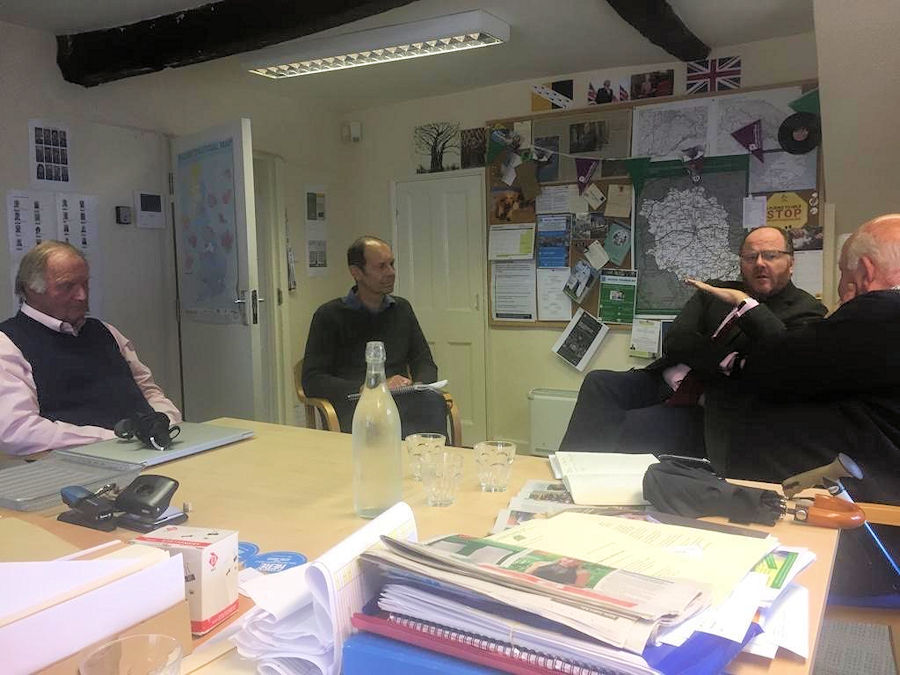We are living through tumultuous times and I wanted to deal directly and properly with the concerns constituents have raised.
As you may know, I campaigned to Remain in the EU Referendum in 2016, but I also promised to respect and honour the result. Despite the obvious weaknesses and failings of that campaign - on both sides - I have been clear and consistent that I will honour that pledge. When MPs ask the people in a Referendum I deeply believe that we must respect that result.
Here in Mid Norfolk people voted 62:38 for Leave. Although as I pledge at each election I believe sincerely that my duty as MP is to try as best I can to represent the interest of ALL the people of Mid Norfolk - including the children and young people who can’t vote - and the interests of the whole community, not just the people who vote for me - the Referendum was a simple Leave or Remain question, and all of us who voted to Remain have to accept that we lost.
So the issue then becomes HOW we leave. I believe it is essential for the interests of the Mid Norfolk (and national) economy, and therefore our public services and all the things that Government provides which are funded from a growing economy, that we secure a Withdrawal Agreement which provides what was promised in the Referendum (and what I believe the vast majority of Mid Norfolk residents want: to be in the “Common Market but NOT the political union”).
This isn’t straightforward because the “Common Market” is based on a Common Customs Union, and Common Trading Standards, which are the very things many Leavers specifically want to Leave. That is why I strongly supported Theresa May in negotiating to get a sensible Withdrawal Agreement for an orderly withdrawal and a workable long-term relationship providing continuity for today’s businesses and sectors (like automotive, aviation, medical research, food & farming and higher education) deeply dependent on collaboration with European projects and partners, but freedom to begin to orientate more of our trade to the fastest-growing global markets worldwide, beyond the EU.
When - in March - it became clear that a coalition of MPs in Parliament who HAD voted to trigger Article 50 were determined to vote AGAINST the Withdrawal Agreement (for their own disingenuous reasons - Opposition MPs just for the sake of opposing, second-referendum MPs to try and force a second referendum, and hard line no-deal Brexiteers to try and force no deal on March 29th) I supported the Prime Minister in seeking an extension.
It was also clear to me that after a series of negotiating errors, Theresa May had run out of runway to negotiate and that we needed a new leader to try and complete the negotiations.
After the EU elections in May it was clear to me that unless we resolve the ongoing Brexit Civil War which has gridlocked our country, Government and Parliament, we will not be able to move on. And worse - we are likely to see extremist politicians exploit the vacuum for their own claims to power. History shows us how dangerous this is. I believe that Jeremy Corbyn’s neo-Marxist front bench would be a disaster for this country.
With public anger at this impasse deepening dangerously, I believe the Conservative Party has to step up and bring new energy, ambition and resolution to getting a sensible Withdrawal Agreement AND launching a bold domestic policy programme of reforms to tackle the deep grievances with UK politics and government which have incubated this crisis.
That is what Boris Johnson offered, is delivering and why I support him. I simply do not accept in any way the caricature of him being put about by the more extreme anti-Brexit campaigners as some sort of right wing extremist.
Anyone who follows Conservative politics knows that Boris Johnson's track record as Mayor of London shows a long commitment to liberal Conservatism, public services, public transport, environmental activism, support for an activist Industrial Strategy, UK aid and International development and major investment in infrastructure and a deep commitment to making Government work for the silent majority of citizens who work and pay their taxes and want Government to work for them.
I am supporting him because he is committed to doing what I think we need to do:
- get on and show the British people that we WILL honour the EU Referendum result
- negotiate hard to get a good deal
- launch a bold programme of domestic reforms to tackle the domestic grievances (infrastructure, connectivity, schools, NHS, social care and better housing and planning and public transport) which are the priority of most UK citizens
It is impossible to please all the people all the time - and I accept and welcome that all constituents will make their own judgements - but I wanted you to hear from me why I have taken the position I have.
It is a huge privilege to be the MP for our part of the world.
I deeply believe that my core responsibility is to try and tackle public disillusionment with politics by:
- Showing that I am listening to - and guided by - the views of this constituency. Mid Norfolk voted 62:38 to Leave.
- Continuing my local work as a hardworking constituency MP to tackle the challenges of inaccessibility, disconnection, marginalisation, and the silent suffering of people in villages and towns which are struggling to remain vibrant.
I believe that by honouring the EU Referendum result and implementing a bold package of domestic reforms we can reunite this country, and re-inspire a New Generation that we are not withdrawing from our global and European responsibilities, but redoubling our commitment to build a more secure, resilient, prosperous and enterprising country in which everyone can realise their potential.
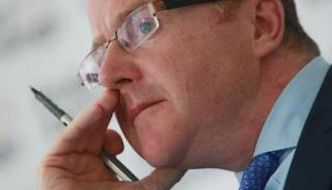
Each day, this country sees c30million ‘travel to work’ journeys. Most are by one person in a car – leading to both high congestion and pollution. The single biggest way to reduce it immediately? Car sharing.
Where is the world’s No 1 car share provider? Norfolk!
Liftshare, started in Mid Norfolk by local entrepreneur Ali Clabburn, has grown into the world’s leading car share provider – helping c1million people every day get to work more quickly, conveniently, healthily, cheaply, environmentally friendly and happily. It’s a big win, win, win.
Good for companies
Good for commuters
Good for tackling congestion
Good for cities
Good for communities
Good for climate change
Good for the economy.
Are you an employer struggling to provide car parking spaces?
Are you an employee looking to save time and money?
Looking to get to work more healthily?
Looking to do your bit in a practical way to reduce pollution?
Liftshare makes it simple.
To find out more, click the link to their website here
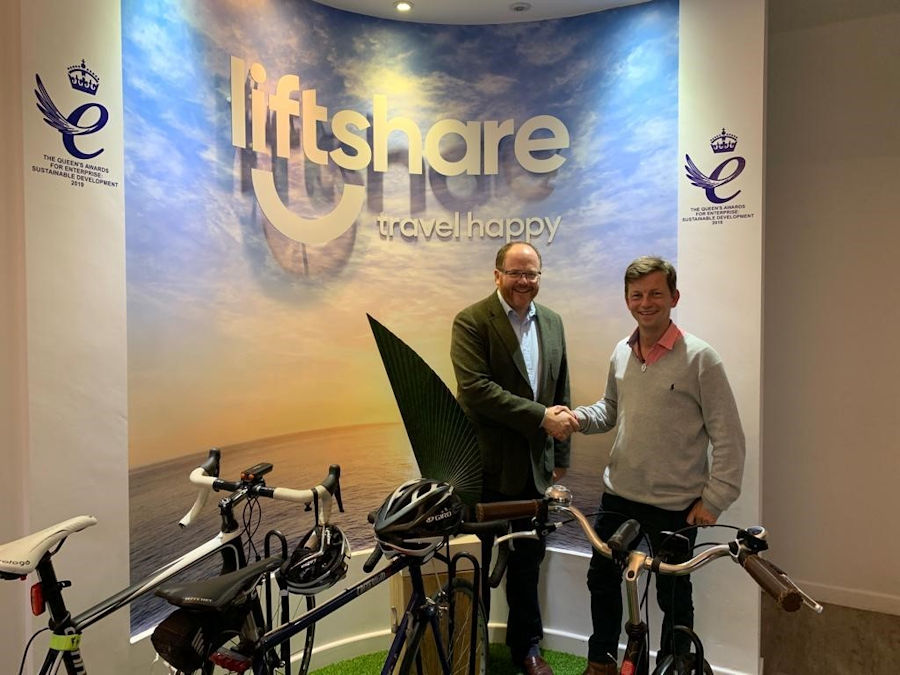
I was pleased to visit the Lodge Griddle & Grill in Tuddenham recently.
The Lodge Griddle & Grill (formerly ‘The Lodge Restaurant & Bar’) is located in Tuddenham between Norwich and Dereham serving lunch or evening meal, as well as holding functions and weddings.
Relax in their warm, friendly environment and indulge in a home-cooked meal from The Lodge Menu, where possible, ingredients have been sourced locally to ensure maximum freshness.
Known as one of the top restaurants in Norfolk, The Lodge menu features classic English pub dishes alongside some great sharing plates & combos. They hold regular events and private hire of the restaurant is available for weddings, christenings, parties & functions – with no room charge for 30+ guests.
A fabulous venue to enjoy with all the family – more than just a country pub (pop in to their newly opened Village Shop)!
To find out more about the Lodge Griddle & Grill, or to book a table, please see the contact information below:
The Lodge Griddle & Grill, Main Road, North Tuddenham, Norfolk, NR20 3DJ
01362 638466
https://thelodge-tuddenham.co.uk/
Sign up to their newsletter to keep informed of our latest news and offers.
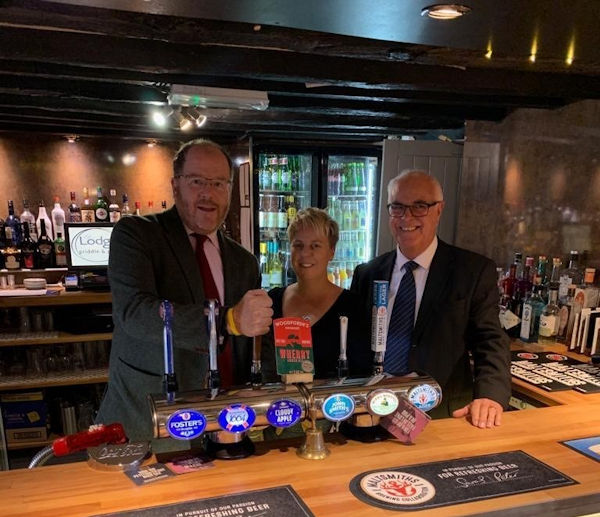
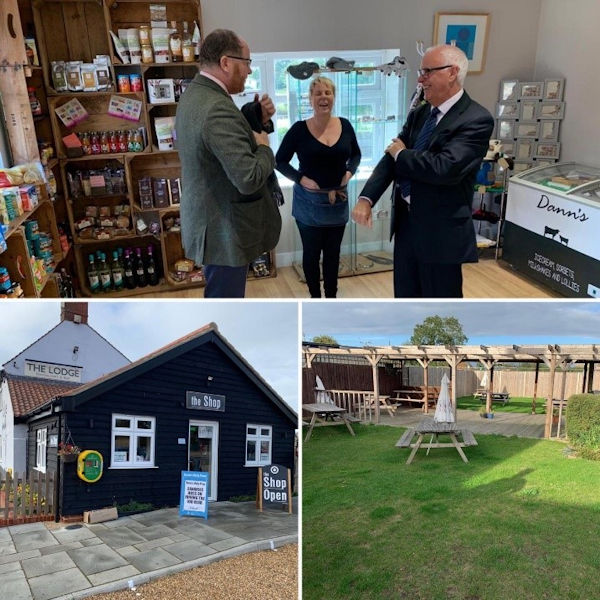
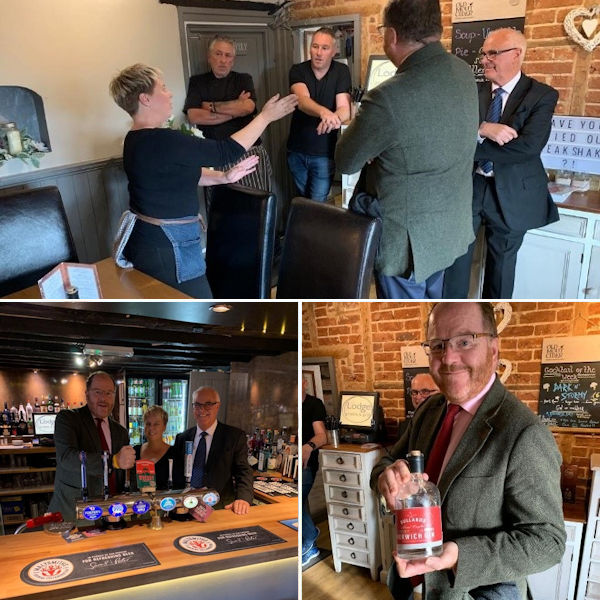
Small rural schools have higher costs and for decades have been underfunded compared to bigger, urban schools. Of course we need excellent facilities which are harder to provide to every small rural school but in rural areas our much loved local schools play a vital role and we need to do all we can to protect them where we can, and avoid children having to be bussed huge distances.
That’s why I’ve campaigned for the Fairer Funding Formula and for an increase in school funding and am delighted that the Prime Minister and Government have listened and announced a major increase in school funding with an average funding in 2020-21 of £4,623 per pupil in Mid Norfolk primary schools and £5,110 per pupil in Mid Norfolk secondary schools – with the total funding for all schools here in Mid Norfolk totalling £64,594,114.
I have included a copy of the letter from the Secretary of State, Gavin Williamson MP, as well as a link to the spreadsheet which shows the increases and figures for schools in Mid Norfolk. National funding formula tables for schools and high needs: 2020 to 2021
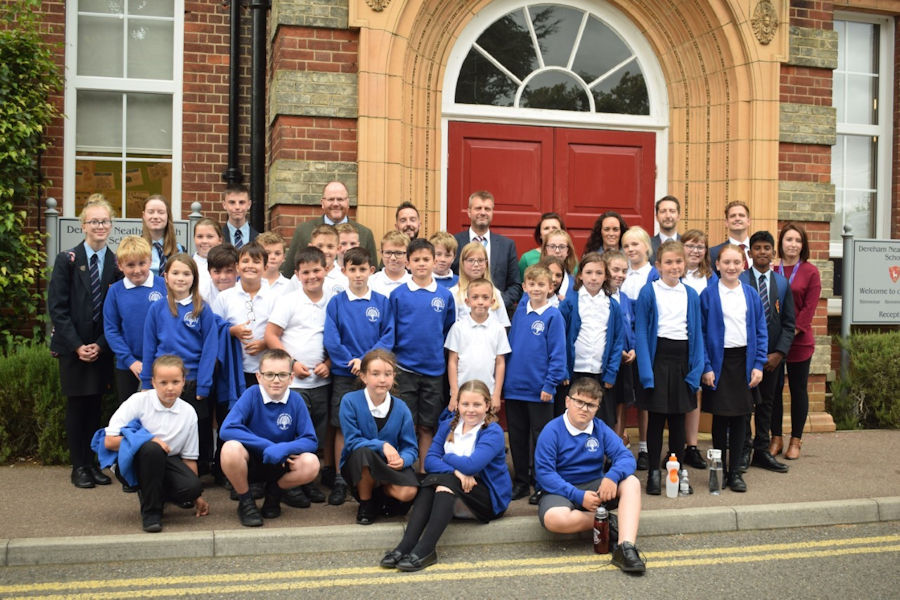


George Freeman responds to a debate on transport infrastructure in North East Bedfordshire and highlights road investment in the area and the Government’s particular focus on improving rail reliability.
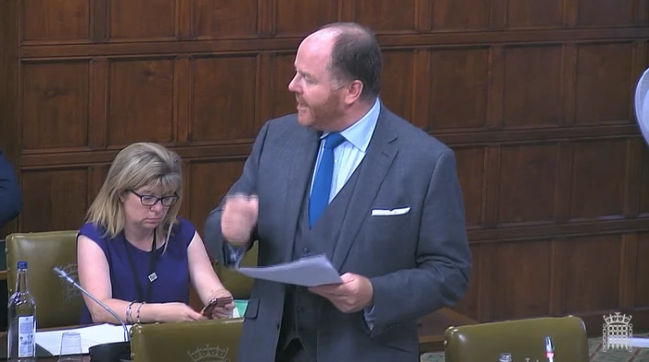
The Minister of State, Department for Transport (George Freeman)
It is a great pleasure to serve under your chairmanship for the first time, Mr Gray. I congratulate my right hon. Friend the Member for North East Bedfordshire (Alistair Burt) on securing the debate. May I say how nice it is to have the chance to respond to him, knowing that he is one of the most assiduous representatives of his constituency and is highly respected across the parties? It is a shame that no Opposition Members are present.
I am pleased to respond to the debate as the new Minister for the future of transport, with a new mission from the Prime Minister to focus on the challenges of disconnection, decarbonisation and digitalisation, and bring a new urgency to the Department’s focus on place-based solutions that put the people and places we serve before the convenience of infrastructure providers. As my right hon. Friend said, we need to ensure that services are working for the people who rely on them and are ultimately paying the bills.
As we all know, well-planned transport infrastructure is critical to the health, wealth and wellbeing of our communities. Bedfordshire is an historic county and an important one in strategic transport terms, with key roads such as the A1, the A5 and the M1 running through it, along with a number of key rail routes; it is also home to Luton’s international airport. Across the transport modes, the Government are making several key investments to help to drive sustainable economic growth. Before I come to them, however, let me deal with my right hon. Friend’s specific points.
On rail, I absolutely understand the concerns that have been raised. I would like to offer some explanation for the performance issues that are affecting my right hon. Friend’s constituents. I know that the railway stations in the towns of Sandy, Biggleswade and Arlesey are vital pieces of public infrastructure. Whether people use rail services to commute to work, to visit family or for any other reason, it is crucial that they can rely on receiving a service that is reliable and frequent. That is why, since joining the Department for Transport, my right hon. Friend the Secretary of State, my other ministerial colleagues and I have made the bread-and-butter issue of the reliability of rail services our No.1 priority.
Let me be very blunt: recent performance on the Great Northern line has not been good enough. Over the past year, we have seen 8% of services on average being cancelled or delayed by 30 minutes or more. That figure is a lot worse than that for the vast majority of other train-operating companies, and the situation has been exacerbated in recent weeks by a series of significant infrastructure issues, including issues with overhead wires, track failures, falling trees and a broken-down train on the key Thameslink route near Blackfriars last week.
I absolutely understand the frustration that passengers must feel when these issues arise; as a rail user, I share it, as does the Secretary of State. That is why he recently met the chief executives of GTR and Network Rail to make it clear to them that improving the reliability of services in this area is vital. Although this does not excuse poor performance, I am pleased to note that GTR held an event at St Pancras last night, allowing passengers to speak directly with the company management, and I will put on the record here that I look forward to hearing the outcome of that meeting.
Notwithstanding those incidents and the urgent need for them to be tackled, I do think that we are seeing some positive signs more generally on the franchise. I know that many of my right hon. Friend’s constituents use the Thameslink service from Bedford, where we have seen significant improvements generally to performance over recent years. Over the past 12 months, about 85% of Thameslink services arrived within five minutes of the schedule. The year before, the percentage was 83% and the year before that it was 79%, so the service is getting better. However, I acknowledge that incidents such as the impact of the May 2018 fiasco and the August power cuts have impacted passenger trust, and we have to sort out this situation to restore that trust.
My right hon. Friend mentioned stop-skipping, and it is without a doubt hugely frustrating for passengers to see the train that they were supposed to board go past without stopping, or for the train that they are on to go past the station at which they had planned to get off. For this reason, the decision to miss out a call is not one that operators should take lightly; it should not be routine.
Skipping stations is one method that operators can use to allow the rail network to recover from disruption. Operational staff take the decision to miss out a stop by balancing the impact on those passengers who are directly affected against the wider impact of allowing the service to continue. Skipping stops helps operators to avoid the knock-on impact that delayed services can have on other services, but if it is not managed proactively, delays can spread quickly across the network and affect hundreds more passengers. There is sometimes a misconception that operators take the decision to miss out stops to manipulate their performance scores. That is not, and absolutely should not be, the case. Any service that misses out a stop is counted as a part-cancellation for the purposes of the performance benchmark that the Department uses to hold operators to account. If train companies exceed that benchmark, they will be subject to financial penalties. Personally, I would like to see more of that money going to the passengers who are affected, but that debate is for another day.
What is absolutely crucial in these situations is the attention that is paid to the poor passengers whose journeys have been disrupted, and communication is vital. We should not have situations where, as my right hon. Friend highlighted, passengers are stuck for long periods with no information about the options to complete their journey. Part of my portfolio is dealing with disconnection, and that is an example of disconnection between the train-operating company and its passengers, who have paid for a service, and one that is completely unacceptable, particularly in a digital age, when communication should be so much easier. I completely understand the frustration of passengers about such situations and I continue to press the rail industry to improve their processes, to make sure that we get this right, and I will pick it up following this debate.
Going forward, and notwithstanding those concerns, we should also speak about some of the positive things that we are seeing on the railways in my right hon. Friend’s area. The Thameslink service from Sandy, Arlesey and Biggleswade, which was introduced last year, now provides weekday passengers with two direct trains per hour to the heart of London. I am pleased that, from December onwards, the current Saturday service to King’s Cross will transfer to this route, providing passengers with a much wider range of direct destinations.
Those constituents of my right hon. Friend who use Bedford station will obviously see service improvements. From December 2020, two East Midlands Railway services per hour will call at all stations between Corby and London St Pancras, providing a big capacity uplift. This, combined with the increased capacity of trains serving the London commuter route, will result in a significant increase in the number of seats, particularly during peak periods, and should release capacity on inter-city services, which will also improve access to and from Luton airport.
Furthermore, I know that my right hon. Friend campaigned passionately for Biggleswade station to receive Access for All funding. Earlier this year, Biggleswade was confirmed as a successful applicant and I congratulate him personally on his leadership in that campaign. Improving accessibility to our railway network is something that both he and I care passionately about. I understand that the plans for Biggleswade are at an early stage, but when the scheme is delivered it will provide an accessible route into the station and between the platforms.
I am sure that my right hon. Friend warmly welcomed the recent housing infrastructure fund award of nearly £70 million for the transformational growth in Biggleswade project, something that he has championed. The funding will provide a new transport interchange at the train station and a replacement bridge over the east coast main line. This is an excellent example—dare I say it, decades late but none the less excellent—of Government funding for transport infrastructure in North East Bedfordshire, which has the potential to help to deliver up to 3,000 new homes. In addition, GTR is also delivering a £15 million passenger benefit fund, which will deliver £80,000 of improvements at Arlesey, Sandy and Biggleswade stations respectively, as well as at Bedford station.
I am conscious of the time, so I will turn now to the strategic road network. We absolutely recognise the importance of the A1 and its impact on my right hon. Friend’s constituents. That is why, as part of the first road investment strategy, we committed to examining the case for improvements to the A1 between the M25 and Peterborough. Anyone who has driven on that road, as I have, knows the problems on it. Following an initial study, our focus has been on the sections between junctions 10 and 14, where we recognise that the challenges on the route are most acute. Initial work has shown that improvements—including some new alignment, or bypassing—would offer poor value for money on current metrics.
Substantial future local growth, which is coming, could and should change that assessment. Therefore, we expect there will be opportunities to re-examine the case for potential improvements to this section, particularly as proposals for the Oxford-to-Cambridge arc, which I am responsible for, are developed. In the meantime, however, we understand that local partners are taking forward some study work to look at the feasibility of improvements to the A1 in the short term. In addition, in February we also announced a preferred route for the A428 Black Cat to Caxton Gibbet scheme. As my right hon. Friend knows, this is a new dual carriageway link between the junction of the A1 and A421, and between the junction of the A428 and A1198.
My right hon. Friend raised the important issue of speed cameras on the A1, and I can reassure him that both the Department and Highways England take the issue of speeding very seriously. I share his disappointment that it was not possible to deliver the previous scheme. I have checked with and am chasing Highways England to ensure that it investigates the possibility of a camera system on this section of the A1, explains to me why the costs have spiralled as they have, and makes sure that it looks seriously to see whether such a camera system is possible. I think that it must be possible to find a way to do it and I will raise this issue with Highways England again following this debate.
I will also raise the issue of congestion on the local road network. My right hon. Friend and I both take congestion very seriously. We do not want to see strategic road work driving up congestion in neighbouring towns and villages, which is why we have made a number of investments for local transport infrastructure projects within wider Bedfordshire. These include providing £2.5 million towards a new Bedford western bypass and £11 million towards the regeneration of Bedford town centre. We are also providing funding towards the A421 dualling scheme that is being led by Central Bedfordshire Council. That is a £22 million investment, which will ease congestion from Fen Farm up to junction 13 of the M1. I understand that Central Bedfordshire Council is also taking forward proposals for a link between the M1 and the A6, with funding from the local growth fund.
Future funding for major transport infrastructure is absolutely key to the Government’s new emphasis on integrating housing and transport, as recent statements by my right hon. Friend the Secretary of State for Housing, Communities and Local Government have made clear. Crucial to that in the south of England is the east-west corridor, which, as I have said, I am now responsible for. It will provide better east-west connectivity across the arc, including in North East Bedfordshire. I will shortly be signing off on the rail routing decision, and I will also push to make sure that, as we build that line, we also consider strategic ways to capture land value and ensure that we are putting money into transport infrastructure, including the strategic roads, so that we have a genuinely integrated approach to road, rail and housing.
I hope that I can reassure my right hon. Friend the Member for North East Bedfordshire that considerable investment is being made in transport infrastructure in his area as part of this Government’s major infrastructure programme. I absolutely hear him on the issues with the railway line, which we are actively pursuing. He made a very good point about rail staffing, which I will pick up on following this debate, and he also made good points on stop-skipping and on speed cameras on the A1.
Alistair Burt
I think we have just 30 seconds left, so I am very grateful to the Minister for giving way. I thank him very much for his responses. However, because we have heard many of these responses before, particularly from Highways England—responses about things that will happen, only for everything to get held up because of decisions made elsewhere—can he make sure this time that some of these improvements are made? If they are not made and we have to keep waiting for others’ decisions, once again nothing will happen.
George Freeman
I am delighted to give my right hon. Friend that reassurance. This is my first appearance in Westminster Hall in this capacity and I look forward to picking up on the issues that he has raised. If we cannot show our constituents that we are putting people and place before the convenience of providers, we will not carry their trust with us. This strategic junction in the UK network—A1, east-west, rail and road—is vital and I will happily give him that undertaking.
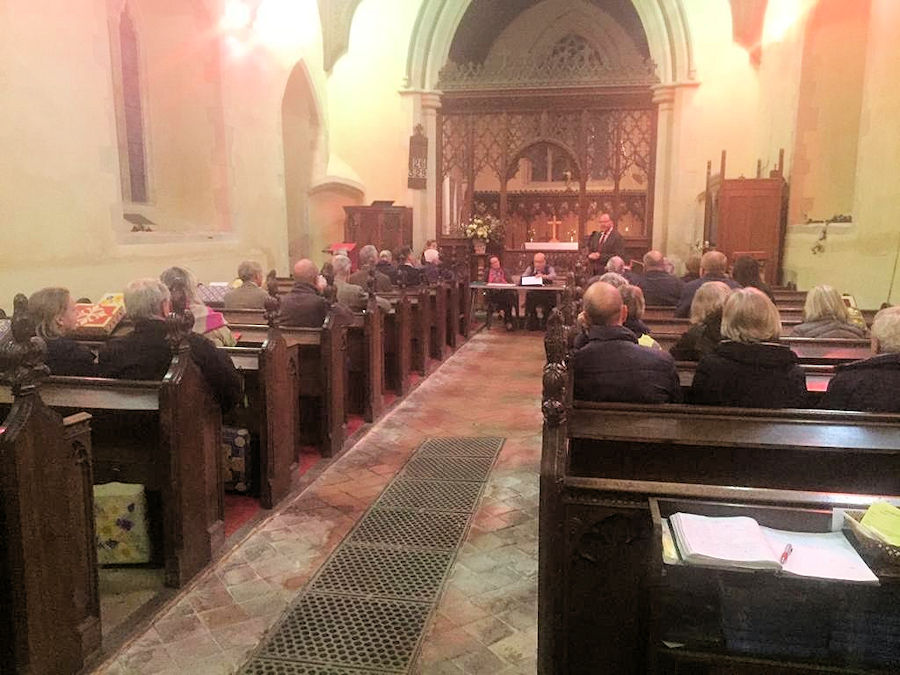
I have long argued that to fulfil Norfolk’s true economic potential, that we must fully dual the A47 and ensure the Western Link from the NDR to A47 are delivered.
I am very proud to have helped secure the £300 million required for the first phase of A47 dualling between North Tuddenham and Easton – a testament to the work of the A47 Alliance and the combined efforts of Norfolk’s MPs between 2010 and 2015.
However, we must ensure that during these improvements issues are not just simply shifted elsewhere. A proper plan must be put in place to ensure that rat-running through nearby communities is prevented while these improvements are delivered.
That’s why I attended a meeting at St Peter’s Church in Kimberley last week to hear from concerned residents from the village, as well as nearby Wymondham, Carleton Forhoe, Barnham Broom and Hockering, amongst others.
A number of actions arose from the meeting and I’m pleased to follow up on these going forward and look forward to reporting back.
Somewhere beautiful, accessible and affordable to build an exciting business career, with affordable homes suitable to start a family? Then it’s Watton in Wayland, Norfolk.
It was great to join Wayland Chamber of Commerce, Business leaders, retailers, local and district councillors and senior executives of Norfolk research and innovation institutes at Broom Hall Hotel this past Friday to launch the new vision for business in Wayland. The Chamber was established in 1957, and is a membership organisation which exists to support business growth and development within Wayland, Watton and the surrounding 15 villages.
The Chamber’s strategy aims to promote business growth in Wayland’s seven industrial and business parks, to rejuvenate Watton High Street, to generate new start-up companies with a programme for young entrepreneurs and the creation of an iconic digital and creative media centre in Watton.
To drive forward the ‘Rural Renaissance’ that I have been championing since becoming an MP, local business must have a strong voice and work together in partnership to bring about the economic development and prosperity that will benefit all. That’s why I am delighted to give my wholehearted support to the Chamber’s ambitious programme for innovation and business growth in Wayland.
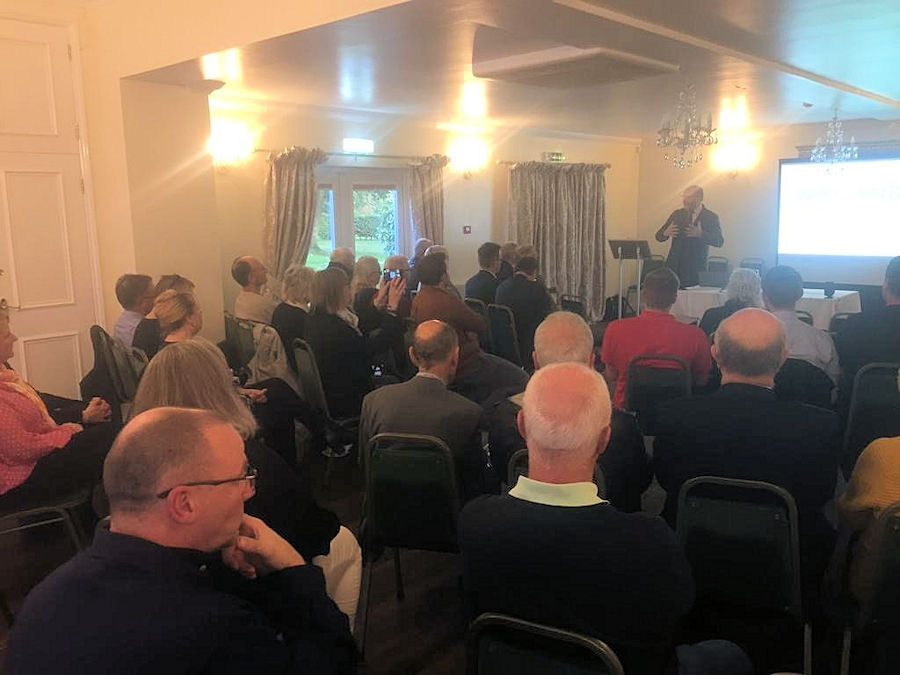

Community shops are a key service in our local villages, but in the age of internet shopping, many have faded away, forcing people to commute greater distances to purchase their much needed supplies.
That’s why I was delighted to visit the The Lodge Pub in North Tuddenham last week to see how they are working to combat this trend and support local residents.
Part of the ‘Pub is the Hub’ initiative, which aims to encourage local pubs to set up hubs that provide local communities with the services they most need - The Lodge has opened a community shop to support the village.
This has been greatly welcomed locally and has also been a boost to the pub itself.
This is a great initiative, and I hope to see many similar projects in the coming months and years.
To find out more about the visit, please see the video below:



I believe my first responsibility as your elected representative is to listen to you and represent YOU!
That’s why I move my regular surgeries (including supermarket surgeries) around Mid Norfolk to make it easier for people to come and see me, and I was pleased to hold one this past Friday at my constituency office in Wymondham, including appointments with representatives of CPRE Norfolk and the National Association of Local Councils.
Whether holding regular surgeries/supermarket surgeries, visiting local businesses and charities or answering over 1000 items of correspondence a week, my top priority is fighting to make sure your voice is heard.
To find out more about how to contact me and what I may be able to do for you, please see the contact page here: https://www.georgefreeman.co.uk/contact
